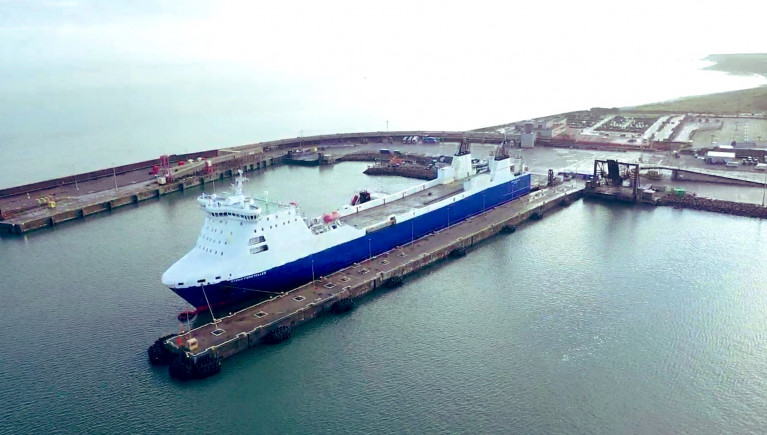Displaying items by tag: Stena Start Earlier
Two Stena ferries will sail on Tuesday to alleviate the pressure on Irish transport companies and add capacity to direct routes to mainland Europe.
Shipping operator Stena Line is adding a second ferry on its direct route between Ireland and France from Tuesday to allow hauliers avoid Britain and Covid-related travel restrictions.
The company said it would be bringing forward plans to double the capacity and frequency of its direct sailings by two weeks from an original planned January 4th start date to cope with demand for post-Brexit freight traffic.
For more The Irish Times reports.
As Afloat previously reported DFDS on 2nd January is to launch a new freight-only route of Rosslare- Dunkirk, northern France served by three ships. They are DFDS Optima Seaways and a pair of chartered ferries, Visby from Baltic Sea operations and Kerry that previously served Brittany Ferries.
The French operator already provides sailings to Bilbao in northern Spain from where ropax Connemara (replaced Kerry last month) was tracked by Afloat.ie to arrive in the Wexford ferryport this afternoon.
In efforts to alleviate the UK land-bridge, Brittany Ferries on 22 March is to open a new Rosslare-Cherbourg service in direct competition with Stena Line.
























































